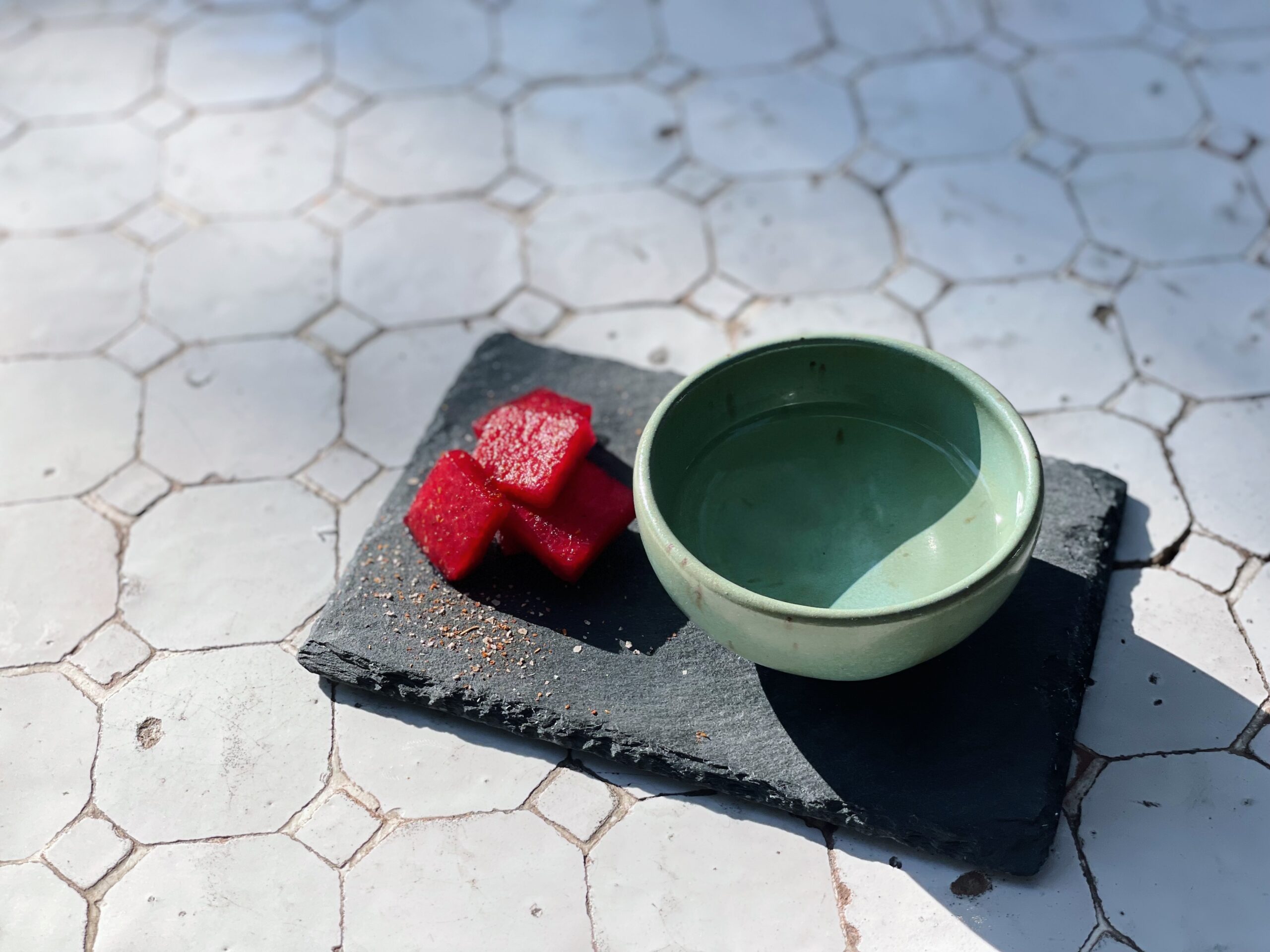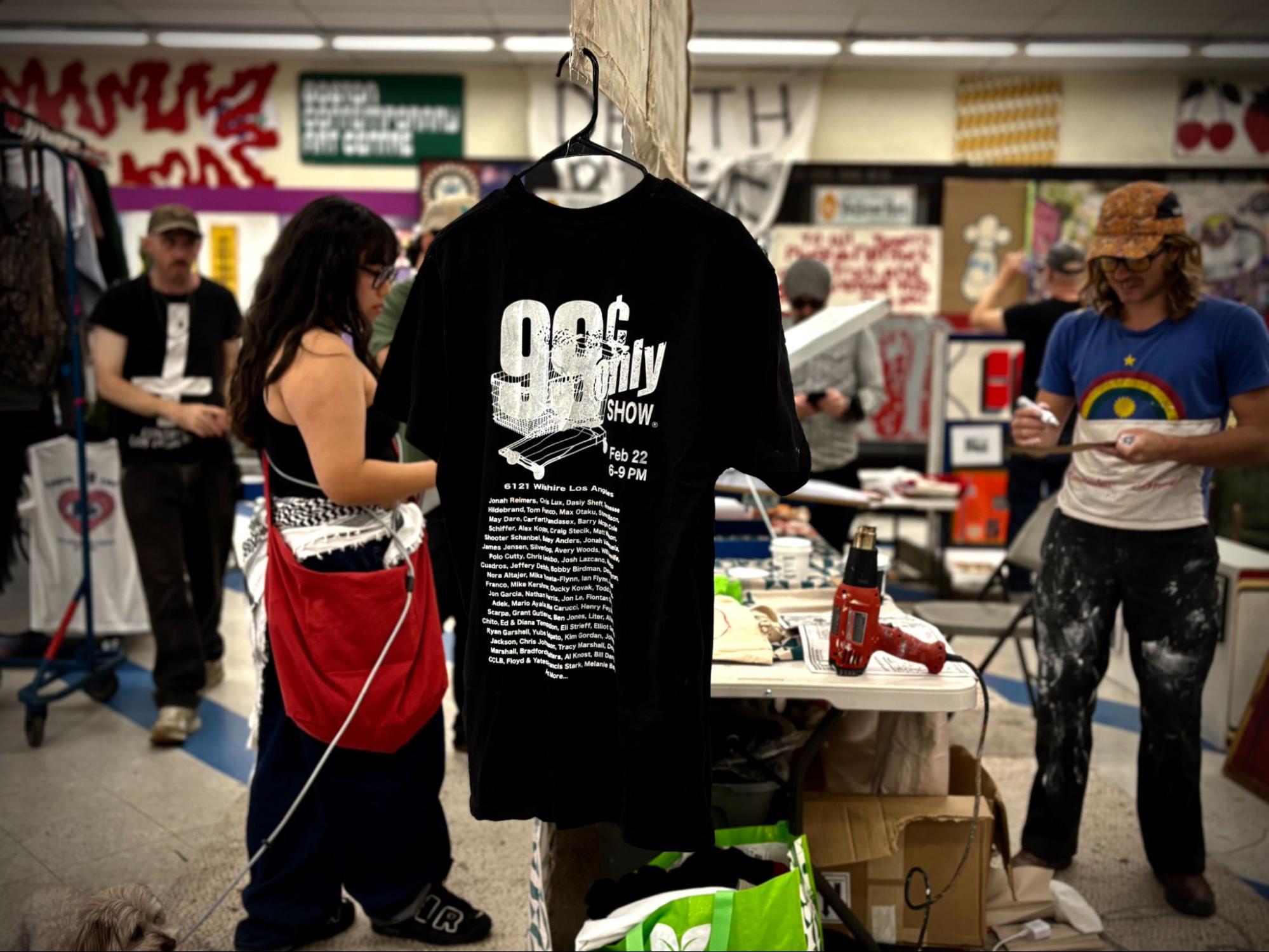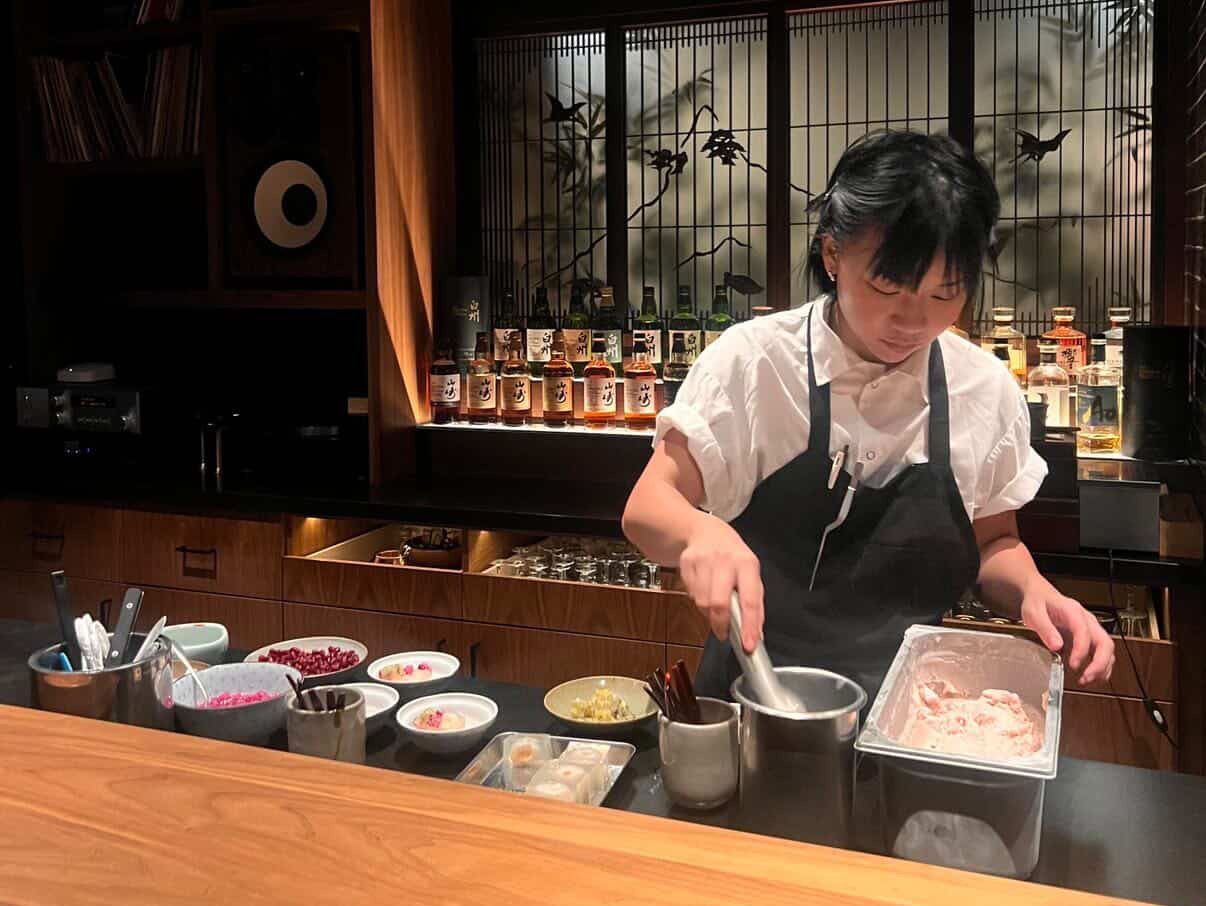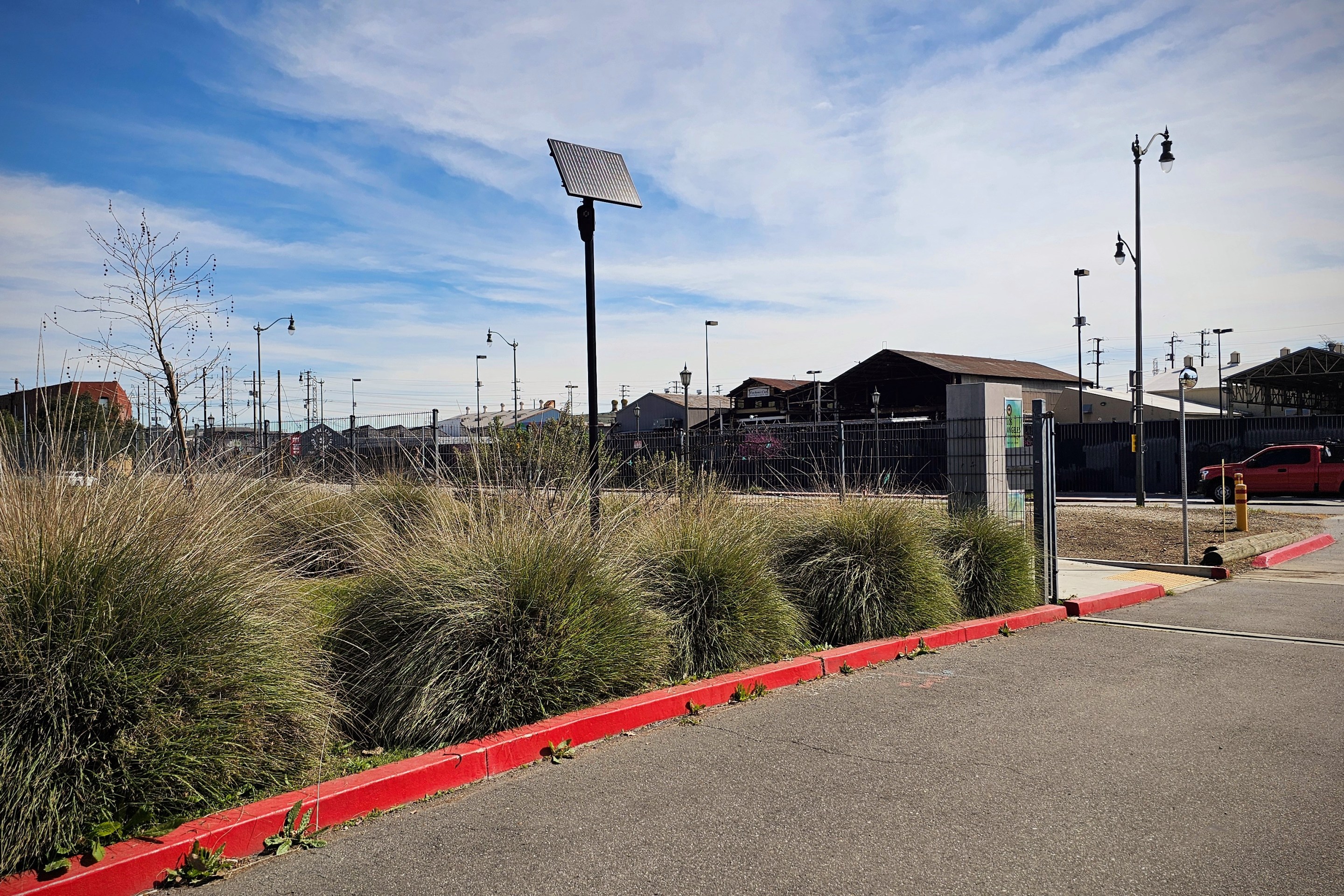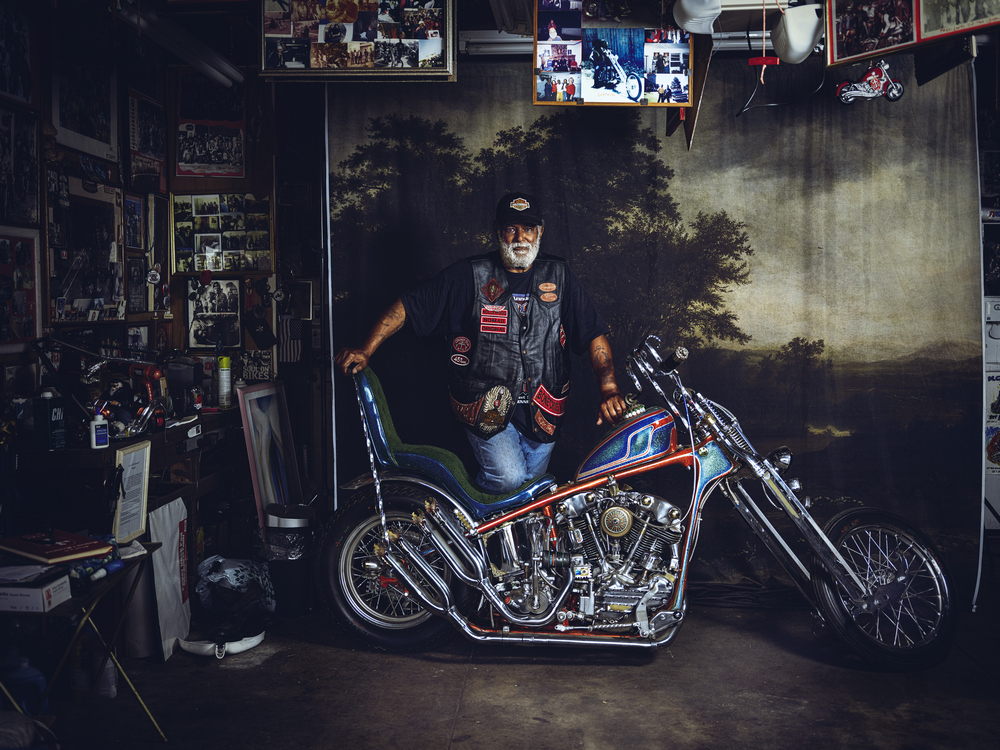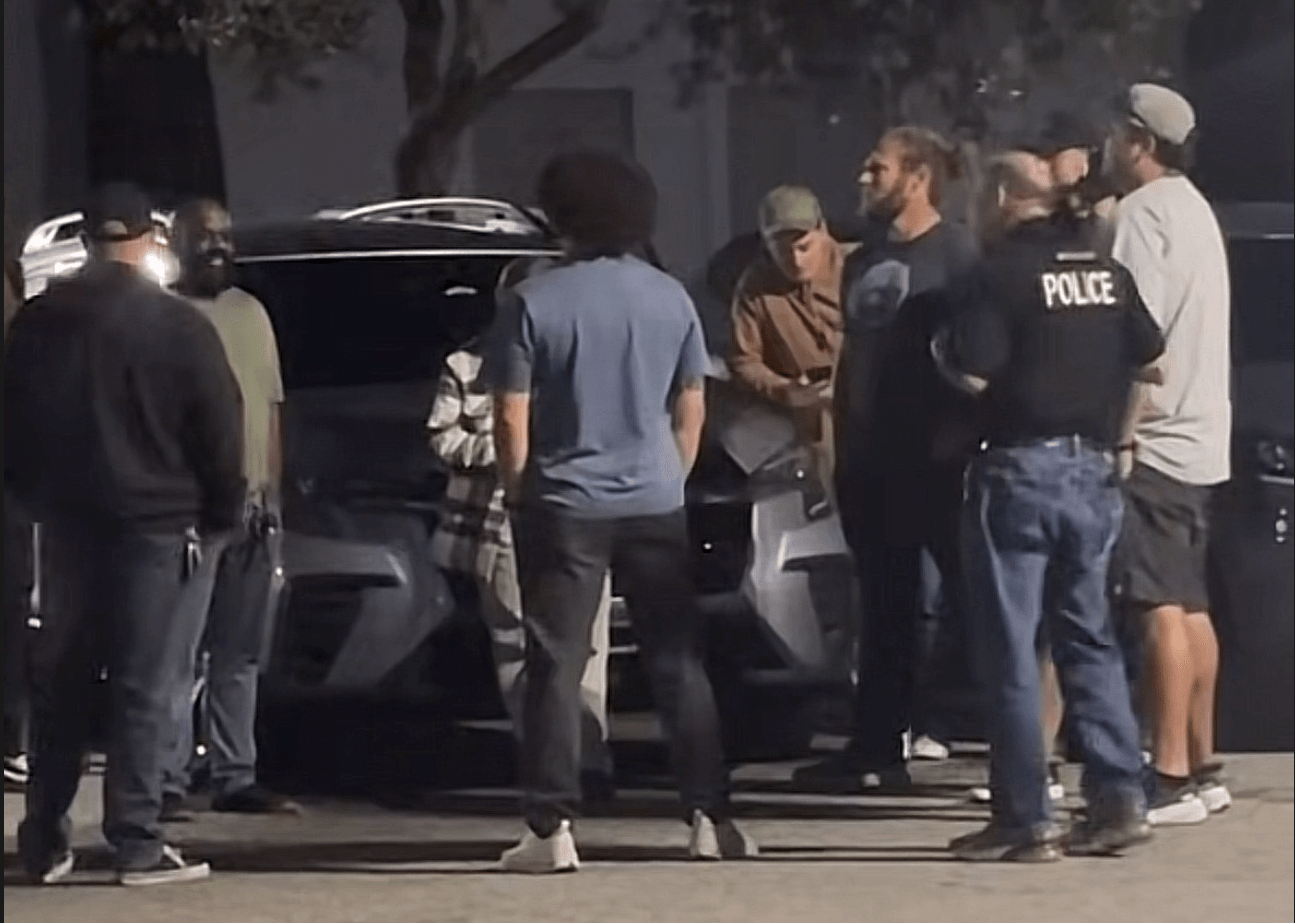Gracias Madre, the vegan Mexican restaurant with locations in West Hollywood and Newport Beach, recently sent its bar team down to Michoacán, Mexico, to make its own mezcal de pechuga at the palenque of a brand it carries, Cotija-based La Luna Mezcal.
The result is a previously unheard of private batch recipe distilled with coca leaves (the raw ingredient that is synthesized into cocaine) cherries, and almonds, and bearing the true-blue name "Cherry Coke Pechuga." Only 52 bottles will be available at $100 a piece starting Feb. 10.
Pechuga mezcal is a unique distillate prepared for special occasions such as weddings and funerals, said to have originated in the maguey stronghold of Oaxaca's Santa Catarina Minas. Traditions differ by region, but the customary methodology involves two initial distillations, at which point seasonal fruits, herbs, and nuts, or a syrup made from these ingredients, gets added to the distillate, with an animal suspended over the still's top, to impart flavors before a third and final distillation. The ingredients chosen are meant to reflect the personality and surroundings of the mezcalero.
Maxwell Reis, the beverage director at Gracias Madre, brought the crew down after La Luna invited a few vendors it works with to create its own customized private batch. As a vegan restaurant, Reis knew that hanging an animal over the still would never fly. So he got creative.
"I started thinking on what we can do to make this the most traditional product we could outside of the meat addition," Reis tells L.A. TACO. "Eventually, I went, ‘Why are we faking this?’ We’re a mezcal bar of people with all sorts of racial backgrounds and creeds, and we’re going down to make this thing that’s inherently untraditional. Let's lean into it and make something that no native Mexican in the region would create."
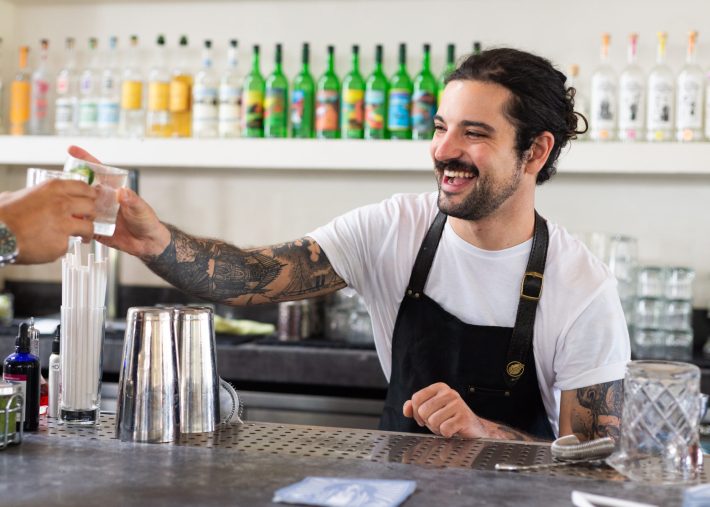
"So I thought 'okay, we’re a bunch of North Americans going down to make this pechuga,'" Reis continues. "What’s more American than Cherry Coke? We wanted to do something fun and playful, so I said, 'Hey guys, we’re going to do a Cherry Coke pechuga.'"
To turn this strange dream into a reality, the Gracias Madre crew started with mezcal made from wild Chino maguey, the large variety of agave cupreata that Reis says is like "like the espadin of Michoacán." An admirer of Michoacán mezcal and Chino's fruity flavor and dark chocolate aspects, highlighting less common agaves from different Mexican states is one of his program's missions.
"I really think it’s important as a purveyor of mezcal here in the States and especially Southern California, where we sell the most mezcal out of anywhere else and have the largest market, to have people enjoying mezcal from all different regions," he says.
The team then sourced cherries and, after the kola nuts they sourced were found to be too bitter, almonds. The crowning touch came in the form of coca leaves sourced from a Central American vendor who sells them for tea.
"I do enjoy being a little edgy and inappropriate in this space at time," Reis tells us. "But they are not illegal there like they are here. You can make tea or chew on them or whatever for something like a caffeine buzz."
The crew then took these ingredients and put them into the still before the second distillation of the mezcal Chino, then took the various cuts from the punta (head), corazón (heart), and cola (tail), which differ in intensity, and made a blend.
"It's what we call a very animated product," Reis says of the resulting mezcal pechuga. "The cherry definitely comes through and combines really well with the nature of the agave Chino. On the nose, it reads very cherry. But when you taste it, you get much more of the herbaceous notes from the coca leaves. It kind of walks the line between an agave and an eau-de-vie."
And no, it won't get you high. Much like marijuana, which is often infused into private batches of mezcal on the low, any potential narcotic effects are distilled out.
"There is no narcotic effect, it’s super safe for guests," Reis insists. "The difference between coca leaves and cocaine is drastic."
The first taste of this truly individual mezcal will be offered at Gracias Madre West Hollywood on Feb. 9 at a dinner collaboration with La Luna, who Reis admires for its traditional methodology despite the company's larger size. The next day, 52 bottles will be available at $100 each at both of the restaurant's locations.
"It’s completely experimental and we’ll probably never do it again," Reis says.
Though he expects it to sell fast, Reis is holding on to some to include in exclusive mezcal flights. This is, after all, a bar that uses a rare, private batch just for its well mezcal.
Beyond offering guests something special, Reis is thrilled to have his team engage in person with the mezcaleros whose product he carries. He's posted an Instagram story showing highlights of his La Luna trip and the making the pechuga.
On the flip side, he was excited to see the team at La Luna's palenque connect with the people who stock and sell the fruits of their hard work. He hopes this kind of interaction and creativity can offer the younger generation extra incentive to stick with mezcal production.
"After we made it, one of the guys from the palenque went into the back and took out this mini copper still and made this small batch of marijuana mezcal, just for fun on his own, independently," Reis recalls. "I think it was kind of in the air like, ‘Oh, that’s a cool idea. Look what I like to do.’”
